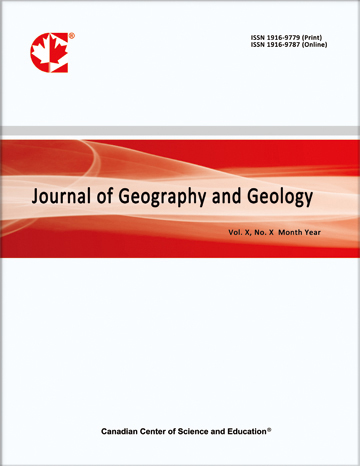Socio-Demographic Determinants of Response Strategies by Resource-Poor Farmers to Climate Change in South-Eastern Nigeria
- Asuquo Afangideh
- Phillip A. Akpan
- Emmanuel P. Udofia
- Donald A. Ukeh
Abstract
Direct and indirect socio-demographic attributes of the resource-poor farmers were determined in the study as potential controls of reactive and/or autonomous response to climate change. One thousand five hundred (1500) farming households (FH) were randomly drawn from six thousand (6000) estimated population of study in sixty (60) farming communities (FC) with the multi-stage survey research design. The critical path analytical technique with the multiple regression analysis backward solution was utilized to enhance understanding of patterns of relationships between eight socio-demographic variables. The variables were age of respondent, sex, educational level, average monthly income, cropping experience, crops grown, cropping pattern, farm enterprise and the response strategy/capacity (dependent variables). The sex, age and farm enterprise of respondent was shown to have 66% direct influence on the response capacity of the farmers, while the remaining five variables have accumulative 66% indirect effects. The direct socio-demographic factors that seemed more potent are suggested in planning adaptive responses built up to climate change for the farmers.
- Full Text:
 PDF
PDF
- DOI:10.5539/jgg.v4n1p33
Journal Metrics
(The data was calculated based on Google Scholar Citations)
Google-based Impact Factor (2018): 11.90
h-index (January 2018): 17
i10-index (January 2018): 36
h5-index (January 2018): 13
h5-median(January 2018): 15
Index
- BASE (Bielefeld Academic Search Engine)
- Bibliography and Index of Geology
- CiteFactor
- CNKI Scholar
- Educational Research Abstracts
- Excellence in Research for Australia (ERA)
- GeoRef
- Google Scholar
- LOCKSS
- NewJour
- Norwegian Centre for Research Data (NSD)
- Open J-Gate
- PKP Open Archives Harvester
- SHERPA/RoMEO
- Standard Periodical Directory
- Ulrich's
- Universe Digital Library
- WorldCat
Contact
- Lesley LuoEditorial Assistant
- jgg@ccsenet.org
